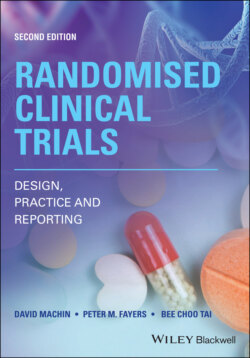Читать книгу Randomised Clinical Trials - David Machin - Страница 77
3.3 Background
ОглавлениеAny individual or group concerned with answering an important clinical question by means of a clinical trial should be conversant with the medical speciality concerned and is likely to be expert within that discipline. Nevertheless, those planning a trial not only need to ensure they have the relevant team assembled but should still be prepared to seek outside assistance as appropriate. Thus, even at the early stages of formulating the research question, discussions with peers from relevant disciplines will always be valuable. Alongside this process, detailed reviews of the medical and related literature are required. These reviews can help formulate the research question itself, provide details on, for example, the safety of the interventions planned, and information on many other aspects of the intended trial. Once the question(s) is defined, a literature search may establish whether or not other trials have been conducted with the same or similar objectives and if so whether these either obviate the need for the trial in question or lead to some modification in its design.
The object of the background section within the trial protocol is to provide an in‐depth summary of how the proposed trial arose, with references to relevant published work, as well as the consequences for clinical practice and/or research once the trial results are known. Essentially this section would contain the information necessary for the Introduction that will be needed for the future research publication describing the trial results. Although it is difficult to be precise about the content the aim is to give an informed reader a clear rationale for justifying the importance and relevance of the clinical trial to be conducted. Thus, it must be persuasive enough to convince those who will be part of the formal approving process, for example, the local ethics committees of the participating clinical centres. It must also convince interested colleagues who may wish to participate. Thus, it should use language which is neither too specialised, nor cluttered with unnecessary detail, yet it must provide a clear scientific/clinical motivation for the randomised trial outlined.
